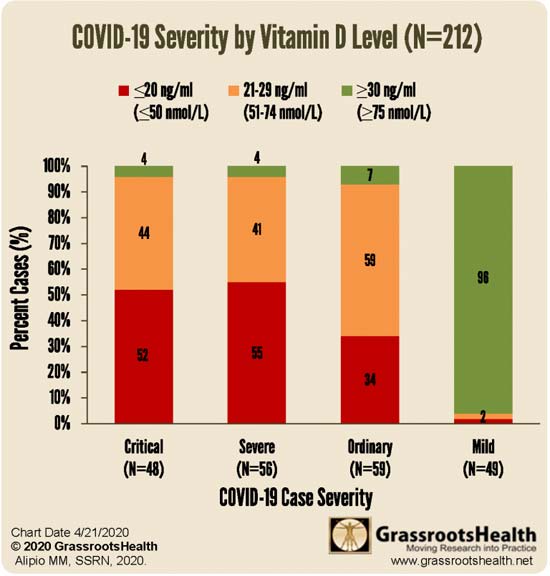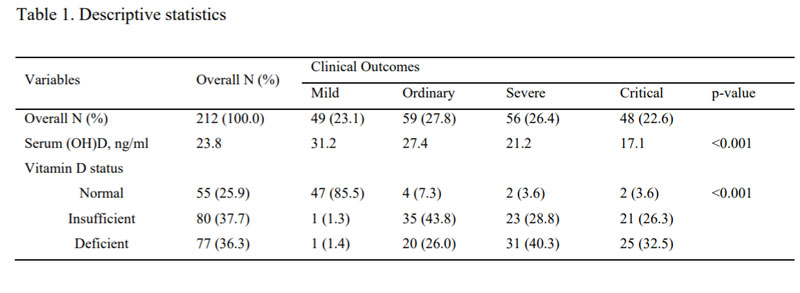Vitamin D Level Is Directly Correlated to COVID-19 Outcome by Dr. Joseph Mercola for Mercola
There is strong scientific evidence vitamin D plays a central role in your immune response and your ability to fight infections. In this video, Ivor Cummins, biochemist and chief program officer for Irish Heart Disease Awareness, explains how recent studies supporting higher levels of vitamin D may reduce your risk of negative outcomes from COVID-19.
He also singles out some of the conditions associated with low vitamin D levels, such as low sun exposure, insulin resistance and high levels of inflammation.
In 2017, a review of randomized, double-blind, placebo-controlled trials using vitamin D2 or D3 was published in the BMJ.1 The data revealed vitamin D supplementation was “safe and it protected against acute respiratory tract infection overall.” They found people who were most deficient experienced the greatest benefit.
I am beyond excited to announce a groundbreaking new study by an organization that we have supported for over 13 years, GrassRootsHealth. Many of you have ordered their vitamin D test in the past, and the funds from that were used to do this clinical trial that could change the entire treatment strategy for COVID-19.
A recent clinical trial to investigate the efficacy of vitamin D against COVID-19 was announced April 3, 2020.2 Days later, Mark Alipio — who received no funding for his work — published a preprint letter3,4 in which he released data from an analysis of 212 people with lab-confirmed COVID-19 and for whom there were serum 25(OH)D levels available. You can read Alipio’s full study here.
Using a classification of symptoms based on previous research, he employed statistical analysis to compare the differences in clinical outcomes against the levels of vitamin D. Of the 212 people, 49 had mild disease; 59 had ordinary disease; 56 were severe and 48 were critical.

In the initial study group of 212 patients (see Table 1 below), 55 had normal vitamin D levels, which Alipio defined as greater than 30 ng/ml; 80 had insufficient levels of 21 to 29 ng/ml and 77 had deficient levels of less than 20 ng/ml. Vitamin D levels were strongly correlated to the severity of the illness experienced. It is important to note that most experts consider 30 ng/ml half of what an optimum vitamin D level should be, which is 60 to 80 ng/ml.

Of the 49 with mild illness, 47 had normal vitamin D levels. For those of you who are not good with math that means that 96% of the patients with mild illness had “normal” levels of vitamin D. Note again this “normal” level was above 30, and most experts would raise that to 60.
Of the combined 104 with severe or critical illness, only four had normal levels of vitamin D. That is 4% or the reciprocal of the mild group. How much stronger a correlation could one hope for? Alipio concluded:5
“… this study provides substantial information to clinicians and health policy-makers. Vitamin D supplementation could possibly improve clinical outcomes of patients infected with Covid-2019 based on increasing odds ratio of having a mild outcome when serum (OH)D level increases. Further research may conduct randomized controlled trials and large population studies to evaluate this recommendation.”




